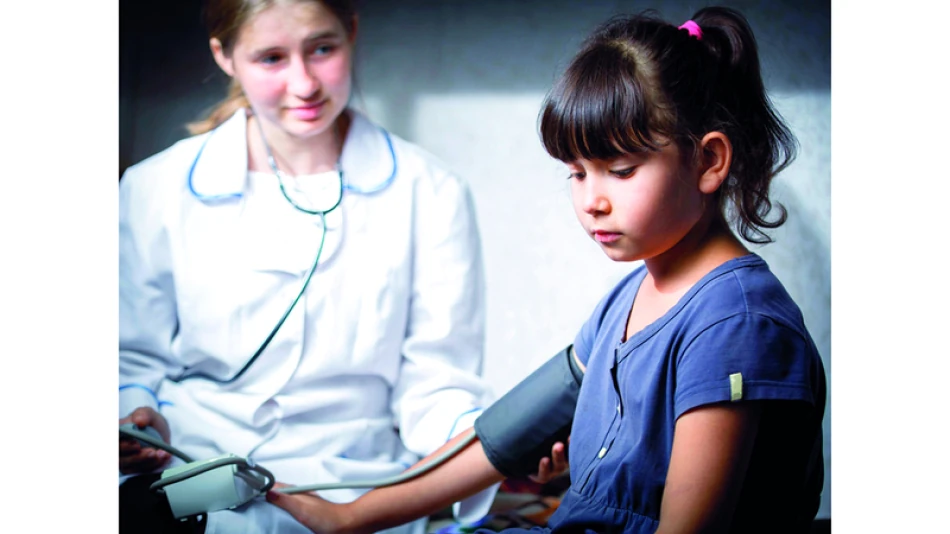
Excess Weight Plagues Young Hearts: Alarming Rise in Blood Pressure Among Children and Teens
Doctors are raising the alarm about a health issue many parents don't see coming: high blood pressure in children. This "silent disease" doesn't just affect adults – it can strike kids too, often without obvious symptoms, and set them up for serious heart problems later in life.
Here's the thing that makes this particularly worrying. High blood pressure in children rarely shows clear warning signs. Kids can have dangerously elevated blood pressure while appearing perfectly healthy. This means parents and doctors might miss it entirely unless they're checking regularly.
Dr. Farah Al Sheikh Bakro, a pediatric specialist, explains the core problem: "The issue is that there are no clear symptoms of high blood pressure in childhood. But that doesn't mean the child is healthy. This leads to not being careful about wrong behaviors that increase blood pressure, especially foods containing large amounts of salt and not doing any physical activity."
The numbers tell a stark story. Less than 2% of normal-weight children have high blood pressure. But that jumps to 5% among overweight kids and shoots up to 15% among those with severe obesity. The connection between weight and blood pressure in children is becoming impossible to ignore.
What makes this even more concerning is how early the damage can start. Research shows that rapid weight gain in babies and toddlers – even in the first six months after birth – can lead to high blood pressure by middle childhood. The pattern gets set remarkably early.
There are two main types of high blood pressure in children. The first has no clear cause and is more common. The second, called secondary hypertension, stems from underlying conditions like heart or kidney problems. In the UAE, most childhood cases appear to be linked to these congenital issues.
But there are warning signs parents should watch for, according to Dr. Hani Al Hindawi, another pediatric specialist. Kids with persistent headaches, dizziness, nosebleeds, unexplained vomiting, rapid heartbeat, chest pain, shortness of breath, or problems with memory and concentration need their blood pressure checked immediately.
The stakes are high. Chronic high blood pressure in children increases their risk of heart disease, heart attacks, heart failure, strokes, kidney disease, vision problems, and cognitive changes. An American study published in the Journal of American Medical Association found a direct link between childhood high blood pressure and early death from heart disease.
Treatment focuses on lifestyle changes first. This means helping kids reach a healthy weight, adding regular exercise, cutting screen time, following a healthy diet, and avoiding all forms of smoking – including the electronic cigarettes that have become common even among children.
Dr. Aya Abdelnasser, another pediatric specialist, points to the rapid increase in childhood obesity as a key driver. The rise in childhood high blood pressure mirrors the obesity epidemic, particularly abdominal obesity.
The dietary recommendations are straightforward but require real changes: more fresh fruits and vegetables, high-fiber foods, less salt, and cutting out sodas, saturated fats, fast food, and processed meals. These aren't just suggestions – they're medical necessities for affected children.
When lifestyle changes aren't enough, doctors may prescribe blood pressure medications. The goal is preventing long-term complications that could affect these children for the rest of their lives.
The message from medical experts is clear: regular blood pressure checks should be routine for all children, not just adults. Early detection and treatment can prevent a lifetime of health problems. And with childhood obesity rates climbing, this silent threat is only getting more dangerous.
Most Viewed News

 Sara Khaled
Sara Khaled






